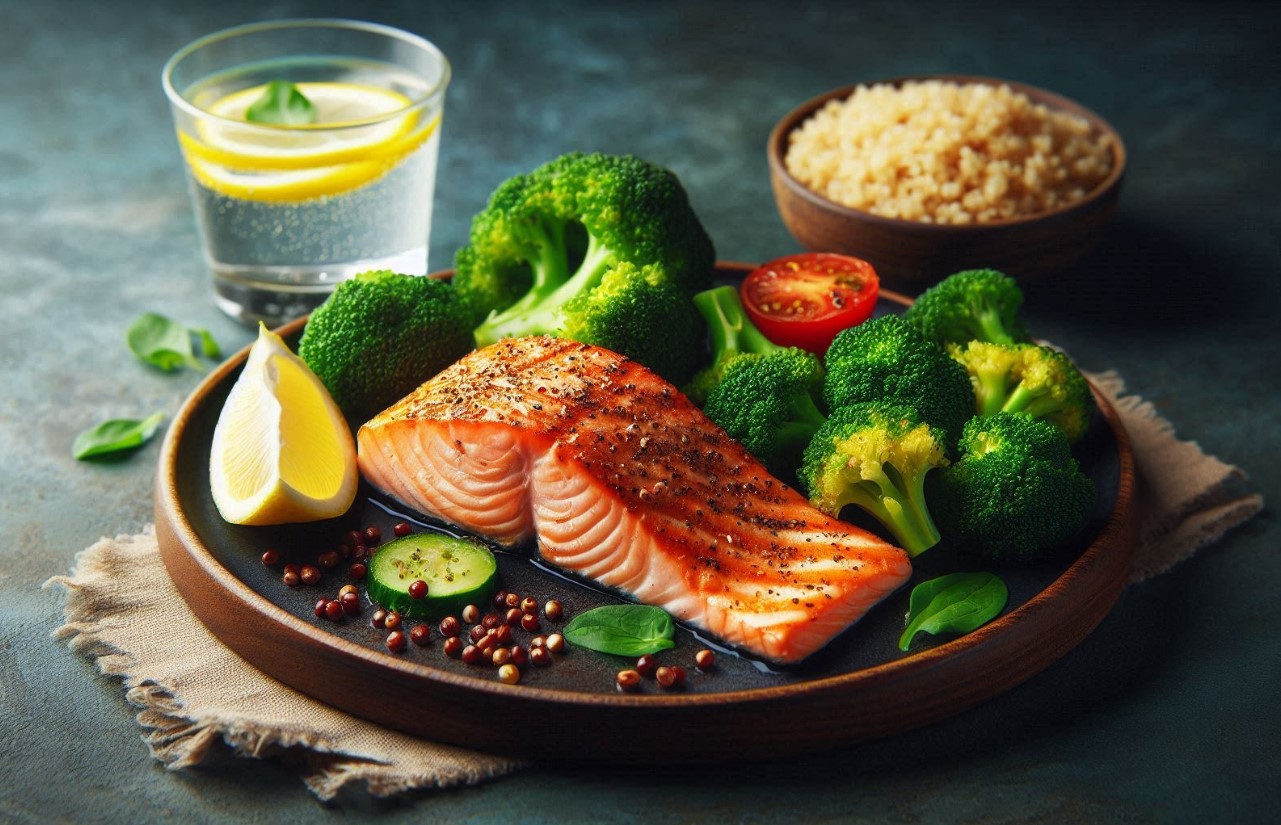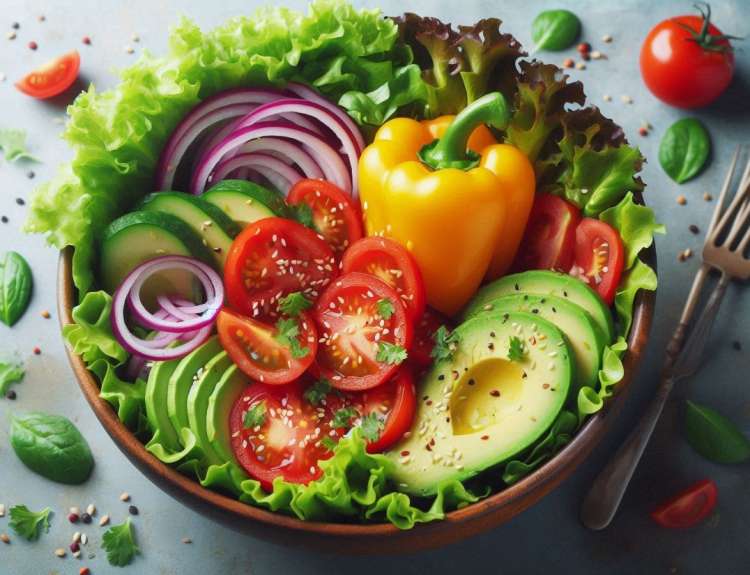Hey there! Let’s dive into a topic that’s super important but often overlooked: the food that keeps our liver and kidneys humming along beautifully. You might not realize it, but what you eat has a colossal impact on these vital organs. In today’s chat, we’re going to explore the best foods to help you keep your liver and kidneys in top shape, along with some tips and tricks to avoid common pitfalls when it comes to your diet. Ready? Let’s roll!
Understanding the Liver and Kidney Functions
Role of the Liver
First off, the liver is like your body’s very own chemical factory. It processes everything you eat and drink, breaking it down into nutrients and filtering out toxins. Plus, it stores energy and makes proteins that are crucial for blood clotting and other essential functions. If you treat your liver well, it returns the favor by ensuring your body runs smoothly.
Role of the Kidneys
Now, onto the kidneys—they’re your body’s natural filtration system. These two bean-shaped organs work tirelessly to remove waste products and excess fluids from the blood. They help regulate blood pressure and maintain electrolyte balance, which is super important for your overall health. When your kidneys are happy, you’re feeling great!
Common Issues Affecting the Liver and Kidneys
Liver Diseases
Liver issues can sneak up on you, with conditions like fatty liver disease, hepatitis, and cirrhosis wreaking havoc. These problems can stem from poor nutrition, excessive alcohol consumption, and even viral infections. Spotting the signs early is crucial.
Kidney Diseases
Similarly, kidney problems, such as chronic kidney disease or kidney stones, can cause serious complications. Diabetes and high blood pressure are two significant contributors to kidney dysfunction. It’s vital to keep an eye on your kidney health.
Key Nutritional Needs for Liver and Kidney Health
Essential Nutrients
To support both your liver and kidneys, you’ll want to focus on specific nutrients. Think antioxidants, vitamins, and minerals—they act like tiny superheroes, zapping away free radicals and keeping your organs in tip-top shape.
Importance of Hydration
Don’t underestimate the power of water! Staying hydrated is essential for both the liver and kidneys. It helps flush out toxins and prevent urinary tract infections (for your kidneys!) while ensuring your liver can detoxify effectively.
Best Foods for the Liver
Leafy Greens and Cruciferous Vegetables
Start your liver health journey with leafy greens like spinach and kale, and don’t forget about cruciferous veggies such as broccoli and Brussels sprouts. These powerhouses are packed with nutrients that help combat oxidative stress, giving your liver a much-needed boost.
Fruits (Especially Berries)
Fruits are your friends, especially berries like blueberries and cranberries. They contain antioxidants that protect liver cells from damage. Not to mention, they’re deliciously sweet!
Healthy Fats (e.g., Avocados, Olive Oil)
Healthy fats are vital for liver function. Incorporate avocados and olive oil into your diet. They contain healthy monounsaturated fats that support liver health and help reduce inflammation.
Protein Sources (Lean Meats, Legumes)
Next up, let’s chat about protein! Lean meats (like chicken and turkey) and legumes (think lentils and chickpeas) are excellent choices. They provide the building blocks for liver cells and can help with repair and regeneration.
Herbs and Spices with Liver Benefits
Don’t forget to spice things up! Herbs like turmeric and garlic not only flavor your dishes but also provide significant liver health benefits. Turmeric is known for its anti-inflammatory properties, while garlic can enhance liver cleansing.
Best Foods for the Kidneys
Low-Sodium Options
For your kidneys, keeping your sodium intake low is crucial. Canned and processed foods often hide excessive sodium, which can harm kidney function. Instead, opt for fresh, whole foods that naturally taste great without added salt.
High-Fiber Foods
Fiber-rich foods like oats, quinoa, and various fruits and veggies are excellent choices. They help control blood sugar and cholesterol levels, important for kidney health. Plus, they help keep you feeling fuller longer!
Specific Fruits for Kidney Health
When it comes to fruits, choose those that are low in potassium if you’re watching your kidney health, such as apples, berries, and grapes. They deliver essential vitamins without putting too much strain on your kidneys.
Healthy Fats and Proteins
Just like with the liver, healthy fats and lean proteins are vital. Unsaturated fats from sources like fish and nuts can help protect your kidneys, while lean proteins ensure you’re nourishing your body without overloading it with waste.
Avoiding Harmful Foods
Foods to Limit for Liver Health
Now, let’s talk about what to avoid. Sugary snacks, refined carbs, and excessive alcohol are like kryptonite for your liver. They can lead to fatty liver and other serious problems, so it’s best to enjoy them sparingly.
Foods to Avoid for Kidney Health
For kidneys, you’ll want to steer clear of high-sodium foods, certain dairy products, and overly processed snacks. A little vigilance can go a long way toward keeping your kidneys functioning well.
Lifestyle Tips for Optimal Health
Importance of Regular Check-Ups
You know what they say—an ounce of prevention is worth a pound of cure! Regular check-ups with your healthcare provider can help catch potential issues before they become serious.
Staying Active
Regular physical activity isn’t just good for your waistline; it’s also great for your liver and kidneys. Aim for at least 150 minutes of moderate exercise each week—your organs will thank you!
Managing Stress and Sleep
Don’t underestimate the importance of mental health. Managing stress and getting enough sleep play significant roles in supporting your liver and kidney functions. Find what relaxes you—be it yoga, meditation, or simply reading a good book—and make it part of your routine.
Conclusion
In the grand scheme of life, what you eat plays a significant role in your liver and kidney health. By incorporating these nutrient-rich foods and making a few lifestyle changes, you can help keep your organs functioning optimally. Here’s to happy, healthy organs!
FAQs
What are the signs of liver problems?
Common signs include fatigue, yellowing of the skin or eyes (jaundice), abdominal pain, and swelling in the legs or abdomen.
Can I reverse kidney damage with diet?
While some kidney damage can be reversed with lifestyle changes, it’s essential to consult your healthcare provider for personalized advice. A balanced diet can certainly help maintain kidney function.
How much water should I drink for kidney health?
Aim for at least 8-10 cups (2-2.5 liters) a day, but individual needs may vary. If you have kidney issues, consult your healthcare provider for specific recommendations.
Is alcohol completely off-limits for liver health?
Not necessarily, but moderation is key. Speak with your healthcare provider to determine what is safe for your liver health.
What role do processed foods play in liver and kidney health?
Processed foods often contain high levels of sugar, sodium, and unhealthy fats, all of which can burden your liver and kidneys. Keeping them to a minimum supports better overall health.
[/vc_column_text][/vc_column][/vc_row]





